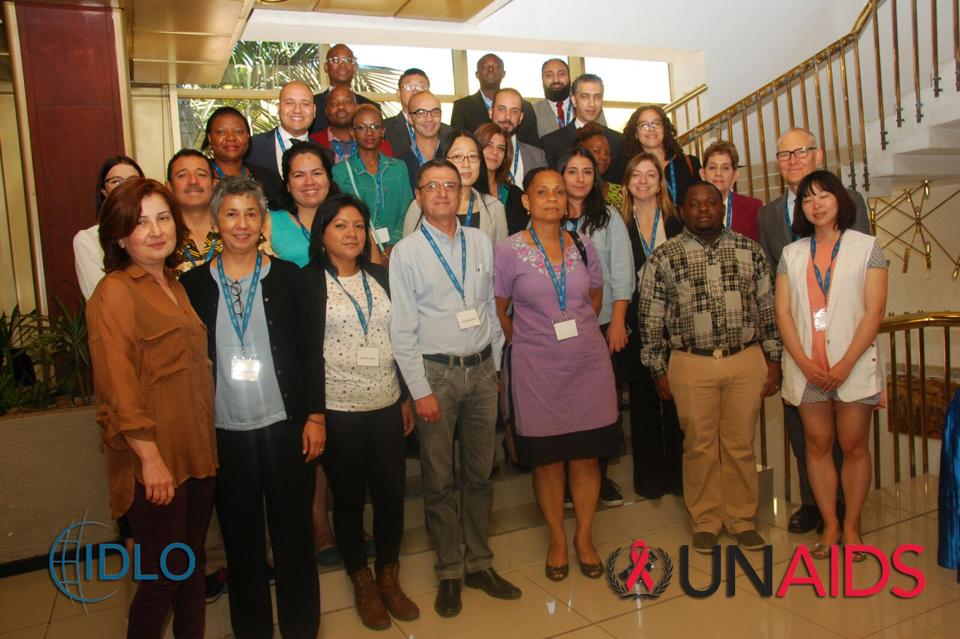Best results for women when using PrEP daily
- Details
- Parent Category: Publications/Resources
- Hits: 1070
Woman who take daily pre-exposure prophylaxis (PrEP) adhere significantly better than woman who take PrEP only twice a week, or before and after sex, as suggested by findings from the HIV Prevention Trials Network (HPTN) 067 trial.
PrEP trials that include gay and bisexual men and discordant couples have been shown to be up to 86% effective. Results from studies including HIV negative women have been less impressive, as both the Fem-PrEP and VOICE trials were unable to prove the effectiveness of PrEP use with women. The HPTN 067 trail was conducted to investigate if daily use of PrEP would be more successful compared to less frequent regimes, as it remained unclear from previous studies.
The trial included 179 women living in Cape Town. Of these women more than 80% were unmarried and unemployed. All women were given PrEP for six weeks and directly observed to estimate steady drugs levels. All women were then randomly assigned to self-administered PrEP groups, either daily, twice weekly with an extra booster dose after sex, or before and after sex (event driven) regime for 24 weeks. The pills were dispersed using an electronic device that recorded each time it was opened, and women were interviewed weekly about their sexual activity. Treatment levels were then measured at week 10 and 30.
The trial found that adherence was significantly higher among women on daily PrEP, compared to women assigned to the twice a week, or event driven schedules, 76%, 65% and 53% respectively. Women taking PrEP daily had more often an effective level of PrEP found in their blood than women assigned to the non-daily arms of the study.
The study concluded that a daily doses of PrEP results in better adherence and higher drug levels in their blood. Taking daily doses does foster better habit formation and provides better protection when a dose is missed. The findings of this study do support the recommendation of daily use of PrEP in women.
New HIV testing guidance to help reach the 90-90-90 targets
- Details
- Parent Category: Publications/Resources
- Hits: 1204
The WHO Department of HIV plans to release new guidance for countries concerning HIV testing services, which will include updated and consolidated recommendations.
Read more: New HIV testing guidance to help reach the 90-90-90 targets
Rates of transmitted HIV drug resistance increased only slightly
- Details
- Parent Category: Publications/Resources
- Hits: 1092
Rates of transmitted HIV drug resistance in low- and middle-income countries most affected by HIV have only increased modestly, according to recently published research in PloS Medicine.
Read more: Rates of transmitted HIV drug resistance increased only slightly
First successful use of synthetic antibodies against HIV in humans
- Details
- Parent Category: Publications/Resources
- Hits: 1174
The first human trial with newly designed synthetic antibodies showed a 300-fold reduction of viral load in trial participants, as reported in the journal, Nature. The antibodies, known as 3BNC117, are designed to block the key viral protein receptor, HIV’s entry point into the blood cells. The designed antibody attaches itself to the proteins on the outside of HIV itself, making it difficult for the virus to connect to blood cells.
Read more: First successful use of synthetic antibodies against HIV in humans
Should PrEP be rolled out worldwide?
- Details
- Parent Category: Publications/Resources
- Hits: 1157
Multiple randomized controlled trials have proven that the use of pre-exposure prophylaxis (PrEP) significantly reduces the risk of HIV among people at risk. Despite its proven efficacy, PrEP is not widely implemented as an HIV prevention tool.
Login Form
Mailbox
You are not logged in.
Breaking The Walls

Media
3rd Inter-regional Consultation on HIV - related Services and Rights
25-27 November 2015, Harare - Zimbabwe.

Regional Dialogue Focus Meeting Assembly
8 - 11 December 2015, Beirut - Lebanon





